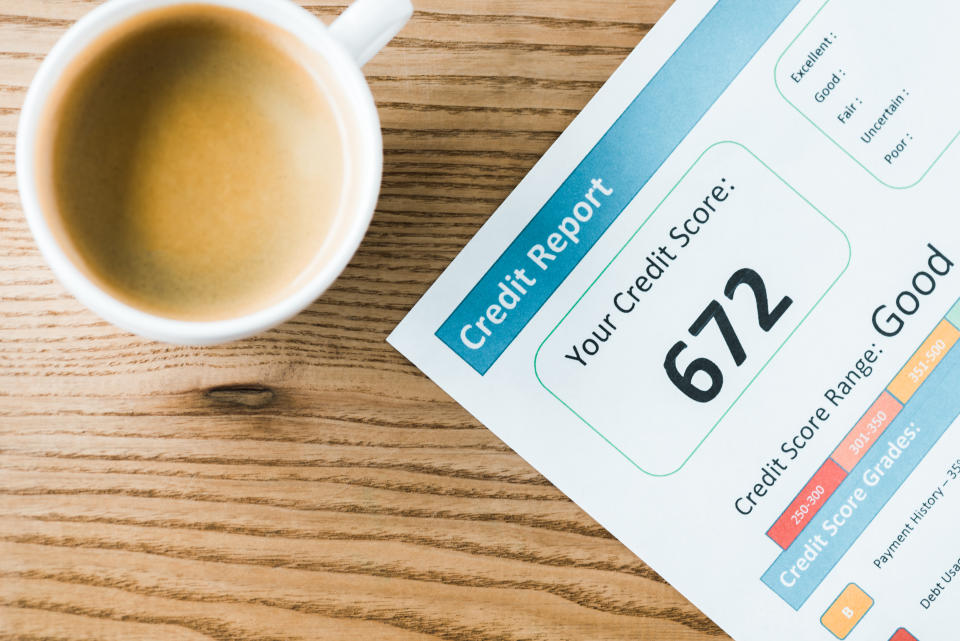
Does Car Insurance Affect Credit Score UK?
Car Insurance Affect Credit Score
Sometimes I wonder if my car has a better social life than I do. It’s always out and about, while I’m here, sitting with my laptop. But I do make sure to keep it insured! And today, we’re talking about how your car insurance can impact your credit score in the UK. Let’s get into it!
The reason is that car insurance is a legal requirement if you own a car, so car insurance providers are only able to offer coverage for a minimum of one year. If you opt to pay monthly, the car insurance company effectively gives you a loan for the total of the year. That makes your monthly premium a repayment, though it may feel like a subscription.
Simply put, signing up for a monthly car insurance plan means you are signing up for a loan too. So if you’re late making the monthly premium payments your score will take a hit and you could default or even be taken to court (which is yet another impact on your credit score). But if you pay all premiums punctually, your credit score may increase.
Another way monthly car insurance can impact your credit score is by canceling one. Because it’s a loan, canceling your car insurance by canceling your direct debit is not an option. You’ll have to inform your insurer that you’d like to cancel and pay any cancellation fees. Otherwise, you’ll be slapped with a slew of missed payments on your credit record really bad news for your credit score.
Does Car Insurance Affect Your Credit Score?
It can do, yes. But that is contingent upon how you pay for your car insurance. Let’s get under the bonnet!
No, so long as you pay for your car insurance in full for the year pay all at once your car insurance is not likely to impact your credit score, and your payment will not be reflected on your credit report. That’s because you are all-in with your insurance on your provider at once. There’s just a soft credit search, which doesn’t appear on credit reports.
No, your credit scores aren’t affected by looking for car insurance and auto insurance quotes. Comparing policies from different providers will only ever do a soft credit search against your report. This is just to verify that you are who you claim to be. And because soft searches are visible only to you, car insurance quotes won’t hurt your credit score. However, the tale can change when you apply for vehicle insurance.
Yes, as noted above, car insurance companies check your credit report to ensure that your details are accurate. They do this no matter how you decide to pay for identity fraud prevention. It’s a soft credit check that doesn’t show up for lenders to see only you. They will normally get into more detail about whether you want to pay monthly, instead of annually.
Car insurance providers look up credit scores in this situation since monthly payment plans are credit agreements. It will also stay on your credit report as a hard credit check. Here you can read more about hard vs soft credit checks.
If You Have Been Looking For: Does car insurance Increase your credit score? The answer, once more, depends on how you pay to do so. Since monthly car insurance is essentially a credit agreement with your car insurance provider, paying it can help you build credit, which is reflected in your credit history. In case you pay for car insurance annually, it won’t help your credit score.
The same applies to car insurance in the UK when you pay a fine all and on time. But does a missed car insurance payment impact your credit score?
Yes. Each month, your repayments will be reported to the three major credit reference agencies (CRAs) in the UK Experian, Equifax, and TransUnion. That means any missed payments will be visible on your credit reports, and could damage your credit scores. Late or missed payments could harm your credit access down the line.
If you have an annual car insurance bill, however, a single missed payment won’t directly affect your credit score. But that doesn’t mean you shouldn’t keep paying, of course. Auto insurance is mandatory to get behind the wheel (yes, even when you’re parked), and there are serious consequences for being uninsured, too.

What Happens If You Don't Pay Your Insurance Bill?
Auto insurers generally provide a grace period before they cancel your policy if you don’t pay your bill. This period may be as long as 30 days, depending on the insurer and where you live.
Your insurance company will give you 10 to 20 days’ notice, by mail or email, before it will cancel your policy. If you can’t pay and don’t cancel the policy yourself, the policy will lapse, triggering one or more of these potential consequences,
- You will not be protected anymore. You’ll have no financial protection if you get in an accident or your vehicle gets damaged or suffers a loss. If you have an accident and insufficient insurance coverage, the other party may choose to sue you.
- You’ll be unprotected. You won’t have any kind of financial protection if you get in an accident, or your car is damaged or lost. If you are involved in an accident and do not have enough insurance coverage, the other party could sue you.
- You might be breaking the law. State laws mandate that you carry at least a minimum amount of liability coverage. If you do not meet that requirement then you may be levied a fine and your driving permit might be suspended.
- Having new coverage can be challenging and costly. Even one day of lacking car insurance can lead to a higher rate on a new policy. Then there’s the matter of SR-22, If your state says you must file one of these forms, which prove that you have the minimum amount of liability coverage generally, if you’ve run into trouble or if you were caught driving without insurance some insurers may not even want to extend a policy to you. If they don’t, it can be even pricier.
- The vehicle could be repossessed. If you still owe money for your car (either through a loan or a lease) the lender has probably specified that you have collision and comprehensive coverage. After your insurer cancels your policy, it usually sends a letter to your lender.
Best Practice Tips For Staying On Top Of Your Credit Rating
But here are some of the best tips to make sure you stay on top of your credit rating:
- Review your credit score for free and request a copy of your report via Experian, TransUnion, or Equifax. Our member-only site Credibility makes it easy to get your Equifax report free.
- Regularly check your credit report to ensure your information is accurate and up-to-date.
- Timely monthly repayments against all your loans and credit.
- Set up a direct debit to ensure you never miss a payment.
- Only borrow what you can afford to pay back.
- Consider using a credit-boosting service.

How Long Does Car Insurance Stay On My Credit Report?
You can get a monthly car insurance plan which gets reported on your credit report the same way a loan does. Once it arrives, it remains on your file, just as long as it is valid.
The one caveat is if you default on your payments missed payments on car insurance last six years on your credit report.

You would face the same if you miss several payments and your car insurance company terminates your account. Defaults also remain on your credit report for six years as do CCJs if the insurer needs to take you to court for late payments.
But missed payments for car insurance won’t just appear on your credit report. They also get logged in to the Claims and Underwriting Exchange (CUE), which records everything about UK claims and car insurance policies. Missing a payment will also get recorded there, for up to 7 years, which may make it more difficult or costly to consider car insurance down the line.
Can Simply Applying For Car Insurance Hurt My Credit Score?
Getting a car insurance quote doesn’t impact your credit score.
Insurance companies do not check your eligibility and don’t run a soft check at best when you ask for a quote. Soft checks don’t appear on your credit report and don’t affect your credit score.
But once you apply, everything changes. When getting monthly coverage, you will have to permit the company to do a hard check on you.
- Hard checks, in contrast to soft checks.
- Are visible to other lenders.
- Remain on your credit report for as long as two years.
- And may also damage your credit score.
Hard checks show up on your credit report, even if your application is denied or approved. It doesn’t even matter if you then change your mind and choose another insurer.
That’s because lots of checks due to many credit applications, could make lenders think you’re in dire straits financially.
The best advice is always to get quotes before you apply and to apply no more than twice in six months. This minimizes the effect on your credit score from hard checks.

Conclusion
Auto insurance companies don’t report on-time payments to the credit bureaus, but you could get credit for your premiums with a free feature called Experian Boost. If you’ve fallen behind on an auto insurance premium, it’s crucial to pay the bill as soon as you’re able or contact your insurer so you can avoid the bill going to collections.
Also remember to establish and retain a fair credit history, as this can apply to have lower charges on your auto insurance. Review your credit report and check your credit score to assess your credit health and see if there’s room to improve.
FAQ
An insurer may deny you coverage if your credit score is bad. However, there are lots of insurance providers out there, so if you shop around, you should be able to find the right deal for you.
If you pay your monthly car insurance bill (plus interest) on time every month, your credit score could improve. Your monthly car insurance payments appear on your credit report, so it’s a way to show that you’re a responsible borrower who pays their debts.
Skips or late payments will ding your credit score and your insurer may even terminate your policy.
One way to make sure that you never miss another car insurance payment is to set up a Direct Debit.

